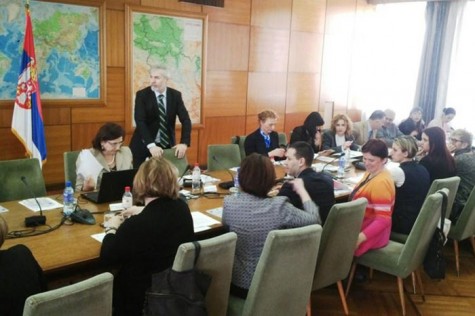With the support of the PLAC project, on 16 March 2016, the Ministry of Justice organised a public consultation on the draft amendments to the Criminal Code, with the aim of harmonising with the Council of Europe Convention on preventing and combating violence against women and domestic violence (Istanbul Convention). In the introductory part, the participants were addressed by the State Secretary of the Ministry of Justice of Serbia, Radomir Ilić, who said that the forthcoming amendments to the Criminal Code will contribute to combating violence against women more efficiently.
He stated that one of the basic ideas of the Istanbul Convention is to remove the perpetrator of violence from family home. He added that it is important to devise an effective system to protect the family, and at the same time not violate human rights of perpetrators.
The Gender Equality Parliamentary Committee Chairman, Meho Omerović, said that violence against women and domestic violence are a big problem in society, and that the numbers show that this problem has not reduced. He added that one of the main reasons why women put up with violence is economic dependence on perpetrators, which is why women need to be empowered to work and live from their work.
The participants of the public consultation were also addressed by Marija Pejčinović Burić, the Team Leader of the PLAC project which supported the analysis of the Istanbul Convention and the Criminal Code, and the development of recommendations for harmonisation. Vesna Ratkovic, PhD, the PLAC project expert, presented the measures and requirements under the Convention for the prevention and the prevention of violence against women and domestic violence, as well as the proposed amendments to the Criminal Code.
The Ministry of Justice will publish the draft amendments to the Criminal Code on its website by 21 March, which will officially initiate a public debate on this document.
Through the PLAC project worth 3.42 million EUR, the European Union assists Serbia in its preparations for the accession to the EU, by improving the mechanisms for harmonisation of legislation with the EU acquis, providing support to drafting laws and relevant regulations, as well as by strengthening the capacity of institutions to implement the harmonised legislation.






